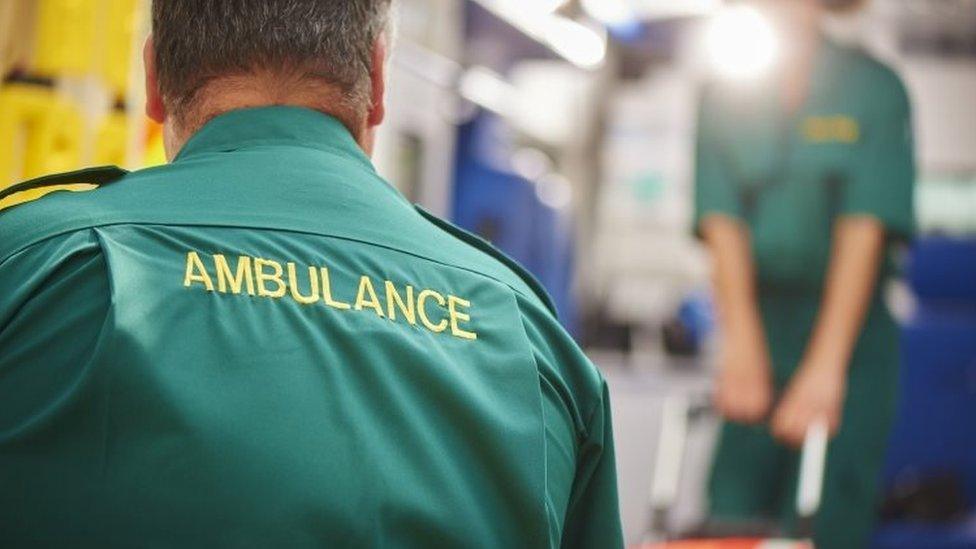Ambulance bodycams might 'make attackers think twice'
- Published
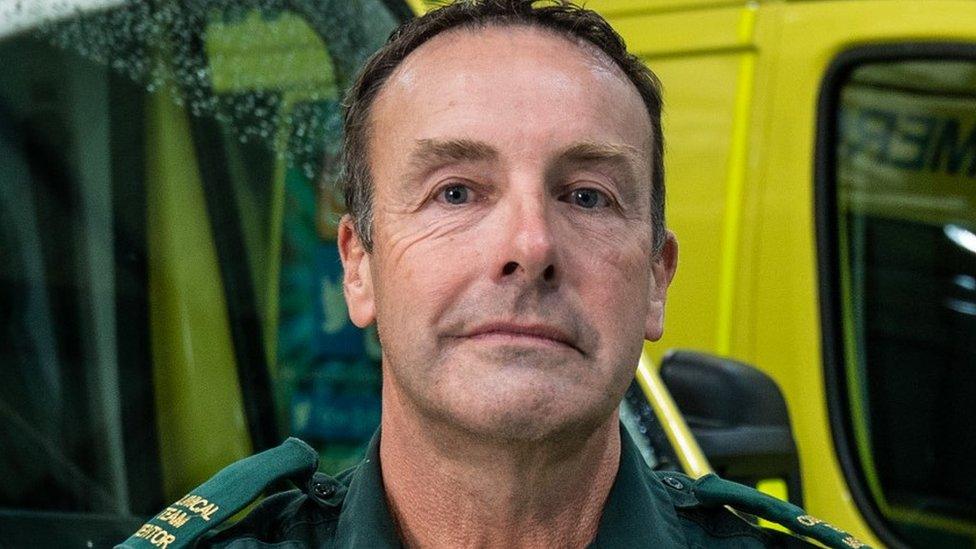
"The cameras are there to protect us in case things turn nasty," paramedic Neil Vann said
A paramedic who was knocked unconscious by a patient believes a bodycam could have prevented the assault.
West Midlands Ambulance Service (WMAS) is giving body-worn cameras to front-line staff following a trial scheme.
Neil Vann, from Coventry, who was attacked in 2017, said: "Had I had a camera when I was assaulted, my assailant might have thought twice."
Physical abuse of WMAS staff rose by more than 60% over the past five years and verbal assaults more than doubled.
There were 1,162 physical attacks recorded on staff in 2020-21 and 2,181 cases of verbal abuse, compared to 724 physical attacks and 1,050 cases of verbal abuse in 2016-17.
Mr Vann added: "I hope I never have to switch it on, but given what happened to me, it is nice to know that I have the chance to record what happened."
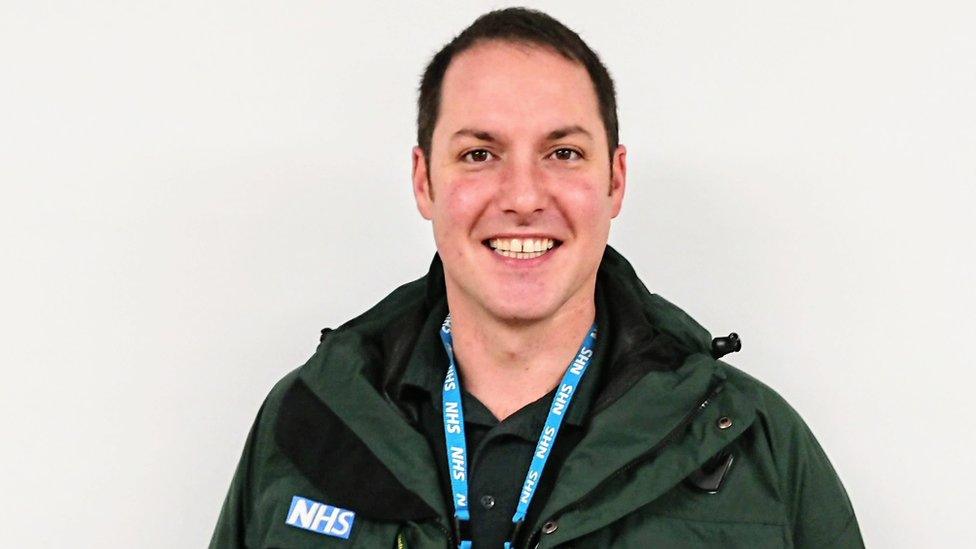
Graeme Jones led the body-worn camera trial for West Midlands Ambulance Service
Bee Knight, who is based in Shrewsbury, was attacked last year and suffered a wrist injury which kept her off work.
"That was seven weeks that I wasn't able to help patients during the Covid-19 pandemic when we needed every member of staff available.
"Having been through that, having a camera that I could switch on would make me feel much safer."
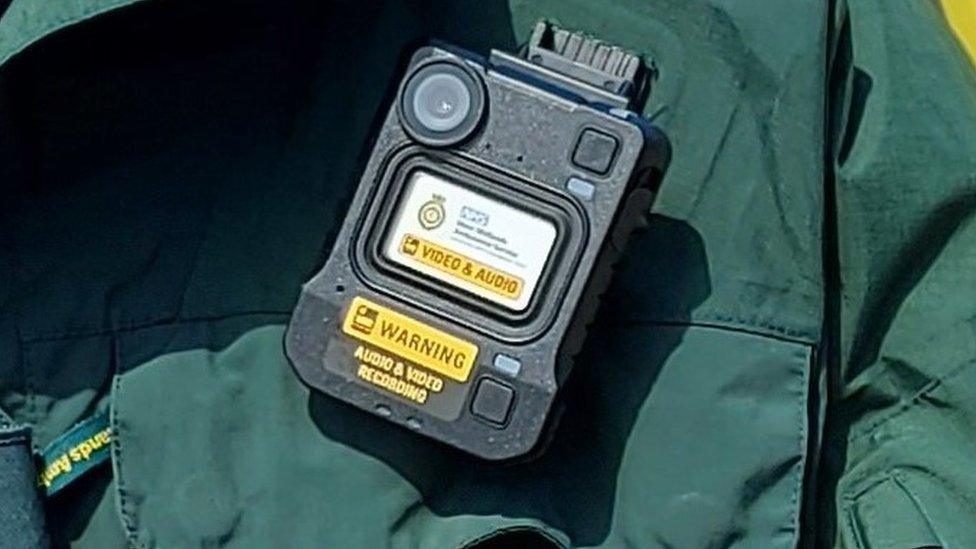
Staff using the cameras in the trial said the cameras made them feel safer, WMAS said
The ambulance service bought 1,288 cameras in March after it was chosen to run a trial.
It was given £920,000 towards the scheme by NHS England, who is providing cameras to all ambulance trusts in the country.
During the trial, the cameras were activated three times by staff in more than 36,000 hours of use.
Graeme Jones, who ran the pilot, said: "The fact that after hundreds of shifts we hadn't caught any footage is probably the best result we could have hoped for."
He also said staff involved in the trial said the cameras made them feel safer and were useful in de-escalating situations where a patient or member of the public started to become aggressive.

Follow BBC West Midlands on Facebook, external, Twitter, external and Instagram, external. Send your story ideas to: newsonline.westmidlands@bbc.co.uk , external
Related topics
- Published2 June 2021
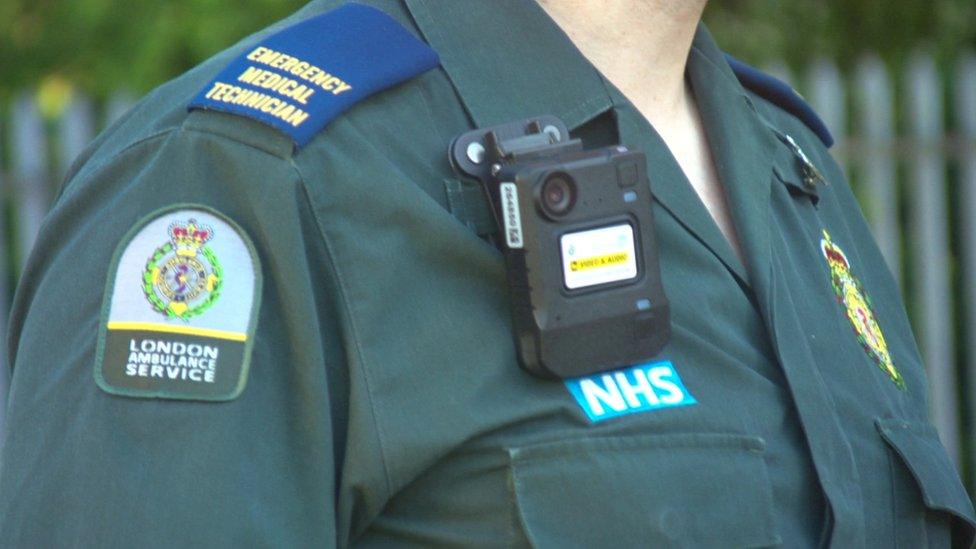
- Published27 March 2021
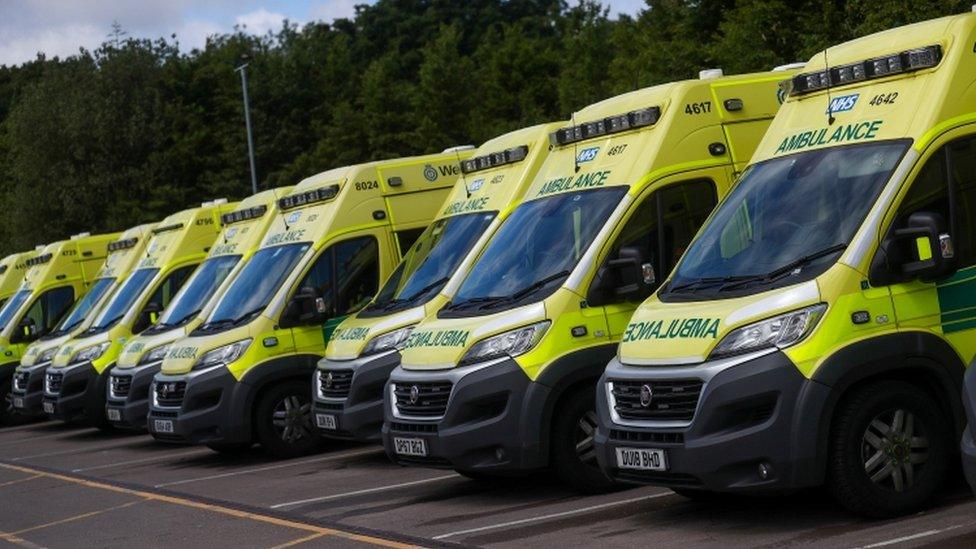
- Published24 June 2019
